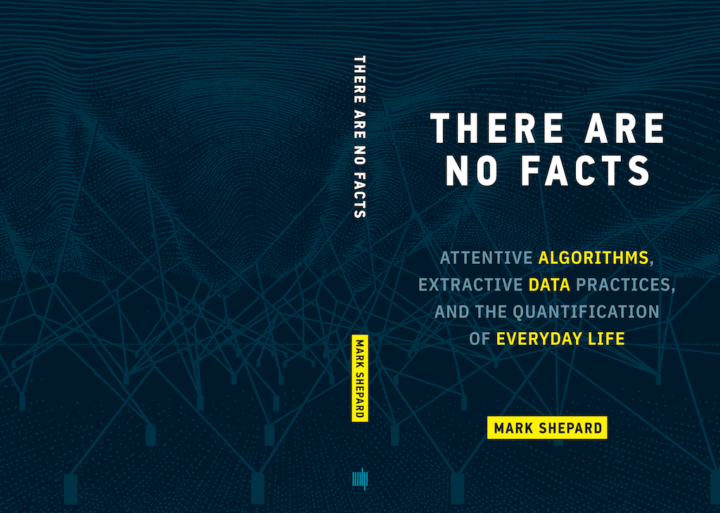There Are No Facts: Attentive Algorithms, Extractive Data Practices, and the Quantification of Everyday Life (MIT Press, 2022) examines the uncommon ground we share in a post-truth world. It unpacks how attentive algorithms and extractive data practices are shaping space, influencing behavior, and colonizing everyday life. Articulating post-truth territory as an architectural and infrastructural condition, it shows how these spatial architectures of attention and data mining are in turn situated within broader histories of empiricism, objectivity, science, colonialism, and perception. These entanglements of people and data, code and space, knowledge and power are considered across scales ranging from the trans-locality of the home to the planetary extent of the COVID–19 pandemic, with stops at the corner bodega, a neighborhood for the proverbial 1%, a waterfront district in Toronto, and a national election. The book probes how these socio-technical systems bracket what we know about the world, how they construe our agency to act within it, and how they shape these spaces that, in turn, shape us.

Praise
“Compellingly argued and richly illustrated, Shepard recasts lying with statistics for the algorithmic age. Essential reading for anyone interested in how knowledge production is contextualized, corrupted, and used in pernicious ways.”
Rob Kitchin, Maynooth University, author of The Data Revolution
“Internationally recognized as a media theorist and interdisciplinary artist, in his first book Mark Shepard brilliantly explores the way that contemporary algorithms shape discourse on the Internet while exposing the biases inherent to those algorithms.”
Kazys Varnelis, Director Network Architecture Lab
“The compelling episodes and examples in There Are No Facts draw the contours of the post-truth landscape. Now is the time for Mark Shepard’s captivating book!”
Molly Wright Steenson, Vice Provost for Faculty and Associate Professor, Carnegie Mellon University; author of Architectural Intelligence: How Designers and Architects Created the Digital Landscape; coeditor of Bauhaus Futures